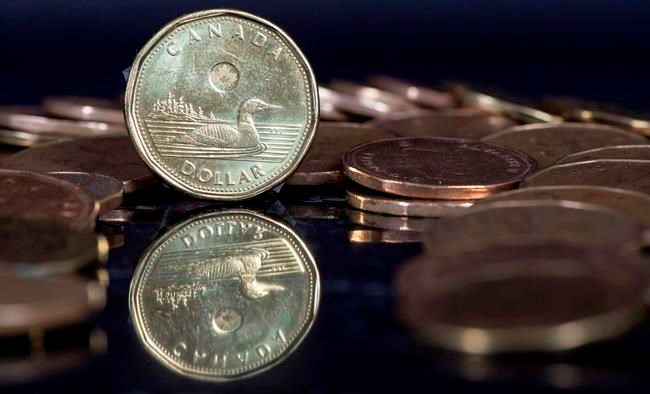TORONTO ÔÇö Weakness in energy and mining stocks outweighed strength elsewhere on Canada's main stock index Wednesday, which lost just a handful of points, while U.S. markets fell near the end of the day after the U.S. Federal Reserve chose to hold on interest rates.┬á
Fed chair Jerome Powell said at a news conference Wednesday afternoon that he thinks the end is near for rate hikes, but the job on getting inflation down is not done.
ÔÇťThe process of getting inflation sustainably down to two per cent has a long way to go,ÔÇŁ Powell said.┬á
U.S. markets held in for most of the day, with the Nasdaq lagging behind, before slumping in the latter half of the afternoon. 
In New York, the Dow Jones industrial average was down 76.85 points at 34,440.88.The S&P 500 index was down 41.75 points at 4,402.20,while the Nasdaq composite was down 209.06 points at 13,469.13.
The S&P/TSX composite index closed down 4.20 points at 20,214.69.
The U.S. Federal Reserve's widely expected rate hold was accompanied by hawkish comments on the future of interest rates and higher growth projections for the U.S. economy, said Ian Chong, portfolio manager for First Avenue Investment Counsel Inc.
The Fed is leaving the door open for another hike in 2023, while also halving its projections for cuts in 2024 from four to two, noted Chong. Meanwhile, it projected that inflation wonÔÇÖt reach its target until 2026.┬á
ÔÇťClearly, they still want to slow the economy such that inflation does get under control. But itÔÇÖs strong enough to withstand something higher for longer,ÔÇŁ or at least for longer at the current level, Chong said.┬á
The Fed now projects 2.1 per cent growth this year, up from its June forecast of one per cent, and 1.5 per cent in 2024, up from 1.1 per cent. 
ÔÇťTheir assumptions continue to suggest some degree of moderation, but no recession,ÔÇŁ Chong said.┬á
ÔÇťThereÔÇÖs some bullish data forecasts that the Fed is putting forward.ÔÇŁ┬á
It was a big change from just a few months earlier, he said, adding that market expectations for rates in 2023 are split on whether the Fed will hike again.
ThatÔÇÖs not the case in Canada, however. After this weekÔÇÖs inflation report surprised to the upside, markets appear to be banking on another hike by the Bank of Canada near the end of the year, said Chong.┬á
In a summary of its latest rate deliberations released Wednesday, Bank of Canada officials expressed concern that inflation isnÔÇÖt moderating fast enough, and agreed they didnÔÇÖt want to raise expectations for a near-term reduction in interest rates.┬á
The Canadian dollar traded for 74.50 cents UScompared with 74.48 cents US on Tuesday.
The November crude contract was down 82 cents at US$89.66 per barrel and the November natural gas contract was down 11 cents at US$2.92 per mmBTU.
The December gold contract was up US$13.40 at US$1,967.10 an ounce and the December copper contract was up three cents at US$3.78 a pound.
ÔÇö With files from Nojoud Al Mallees in Ottawa and The Associated Press
This report by The Canadian Press was first published Sept. 20, 2023.
Companies in this story: (TSX:GSPTSE, TSX:CADUSD=X)
Rosa Saba, The Canadian Press

